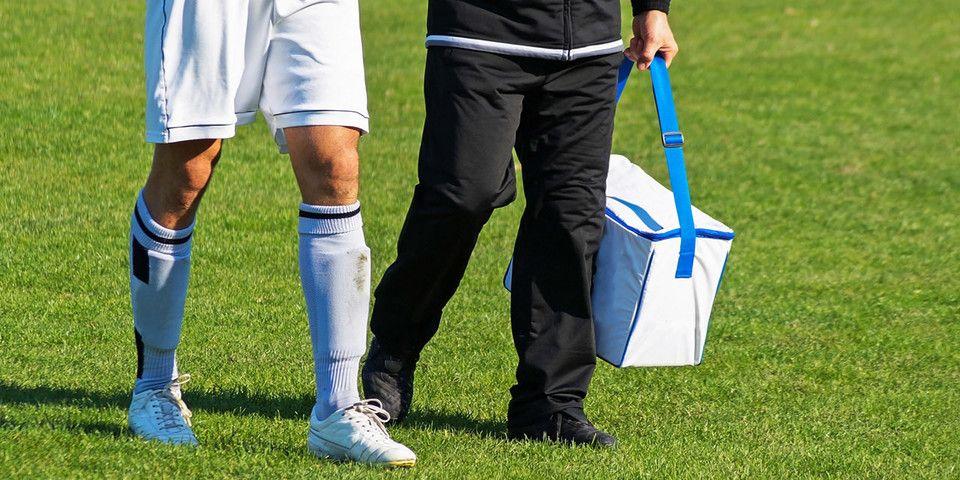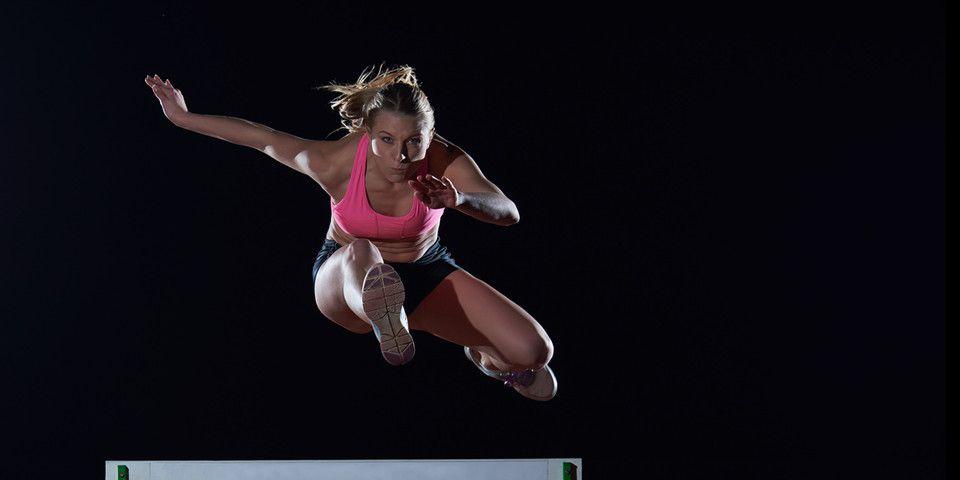Five Methods for Treating a Cycling Lower Back Injury
Take Care of Your Lower Back with These Tips for Injured Cyclists
If you have ever had an injury that kept you from competing in a sport or completing everyday tasks, you know how disheartening it can feel. Cyclists with lower back injuries have difficulty pedaling without pain, causing interruptions in their workouts. Sometimes, the pain is long-lasting and severe, and a diagnosis and medical intervention is necessary. That’s where Rothman Orthopaedic Institute comes in.
The Sports Medicine specialists at Rothman Orthopaedic Institute are experts at diagnosing, treating, and rehabilitating athletes, including cyclists. They can provide quality care and support to help heal cycling lower back pain. Below are five general tips from our specialists on dealing with a cycling lower back injury. You can also check out our eBook, A Cyclist's Guide to Managing Back Pain, for more information.
Five Tips for Any Cycling Lower Back Injury
-
Rest. This is a crucial first step to treating most injuries. Do not bike through back pain! A day or two of rest is usually enough before moving on to other treatment methods, but a physician may recommend more time if your condition is severe. After 48 hours of inactivity, if you are still in significant pain, call your doctor to set up an evaluation.
-
Apply ice, then heat. If you have fallen from your bike, or have felt an initial sensation of pain in your lower back, it is wise to ice the area first. Ice will reduce any swelling that has occurred. After the first couple of days of on-and-off ice application, switch to heating pads, warm washcloths, or hot baths. Heat relaxes the tired muscles in the injured area and can reduce cycling lower back tightness and pain.
-
Attend physical therapy. After diagnosing your cycling lower back pain, your physician may recommend physical therapy for a few weeks or longer. Physical therapy entails more than completing exercise reps; in some cases, this treatment involves ice and heat therapy, massage therapy, ultrasound, and electrical stimulation of the injured area. Both your doctor and your physical therapist will determine what the best methods of physical treatment are for you.
At some point during therapy, you will likely asked to hop on a stationary bike, ride at a lower intensity level, and report how your lower back feels.
-
Exercise for strength. You may have learned from a past physical therapy experience how to do some lower back exercises that strengthen and protect the spine. If not, ask your doctor about a possible conditioning program for your back and which references to use when performing rehabilitating cycling lower back exercises.
The purpose of a spinal conditioning program is to restore flexibility, gain strength, and target specific muscle groups in order to aid recovery. Note that your lower back injury, whether it be an acute injury or a chronic condition, can occur again if you increase your exercise levels too quickly after a rest period. Take it easy and be patient; you’ll be back on the bike in no time.
-
Take precautions on the bike next time. Even when you are feeling almost completely better and have been giving the go-ahead by your doctor to cycle, you should still take precautions when riding. It may be possible that your technique while riding contributed to your injury in the first place. Ask another cyclist to evaluate your riding style if you suspect you may be doing something wrong.
More so, regardless of injury, cyclists should dress appropriately, wear proper footwear, know the type of terrain they will be riding on, and hydrate sufficiently. These general tips can protect cyclists from future injuries.
The Sports Medicine specialists at Rothman Orthopaedic Institute will support you during your injury recovery and get you back on the bike as soon as possible. If you have a cycling lower back injury and are seeking medical advice, please visit us here or contact us at 1-800-321-9999.
Related Physicians
Related Specialties
Related Treatments
- Lower Back Pain (Lumbar) Surgeries
- Lumbar Pain Treatments: Non-Surgical Solutions
- Non-operative Spinal Cord Injury Treatment
- Non-operative Spinal Infection Treatment
- Non-operative Spinal Osteoarthritis (Spondylosis) Treatments
- Non-operative Spinal Stenosis Treatment
- Non-operative Spinal Tumor Treatment
- Spinal Cord Injury Surgery
- Spinal Infection Surgery
- Spinal Stenosis Surgery
- Spinal Tumors Surgery
Related Programs
-

Athletic Training- Sport Medicine Outreach
Our Field Athletic Trainers provide direct sports medicine care to youth, high school, college and professional athletes. Rothman AT’s provide athletic training services throughout Southeastern PA to interscholastic high schools, colleges, as well as tournaments and special events.Read More -

Women’s Sports Medicine Program
The Women’s Sports Medicine Program at the Rothman Orthopaedic Institute is the first of its kind in the Philadelphia metro area and one of only several such programs specializing in the comprehensive care of the female athlete in the country.Read More




